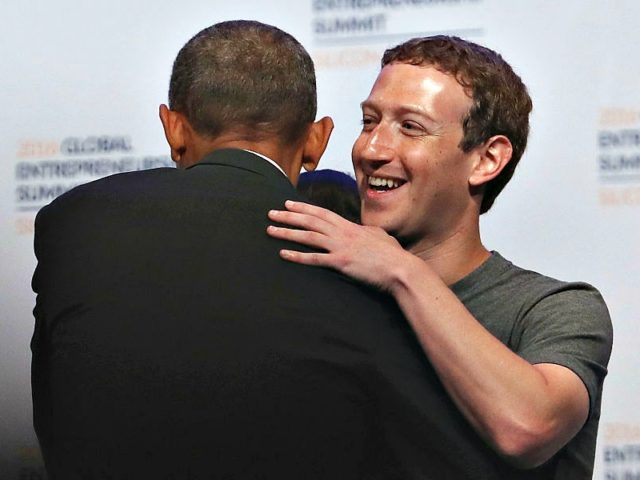Former president Barack Obama spoke directly with Facebook CEO Mark Zuckerberg during the latter’s drafting of a 5,700-word manifesto outlining the company’s future goals.
Obama was one of the instigators of the “fake news” panic that has put Facebook in the establishment’s CROSSHAIRS following the election of Donald Trump. Obama has repeatedly addressed the issue and even discussed it privately with European leaders prior to leaving office.
According to a major New York Times Magazine feature on the future of Facebook, he is also holding private discussions with Mark Zuckerberg.
Earlier that day, Zuckerberg’s staff had sent me a draft of a 5,700 word manifesto that, I was told, he spent weeks writing. The document, “Building Global Community,” argued that until now, Facebook’s corporate goal had merely been to connect people. But that was just Step 1. According to the manifesto, Facebook’s “next focus will be developing the social infrastructure for community — for supporting us, for keeping us safe, for informing us, for civic engagement, and for inclusion of all.” If it was a nebulous crusade, it was also vast in its ambition.
According to the piece, Zuckerberg — after a “pause” — admitted that he had been in talks with former president Obama during the drafting of the manifesto.
When I asked if he had chatted with Obama about the former president’s critique of Facebook, Zuckerberg paused for several seconds, nearly to the point of awkwardness, before answering that he had.
Facebook’s spokespeople then called the New York Times Magazine reporter to clarify the CEO’s comments, which the reporter interpreted as an attempt to counter the perception that the new manifesto was “partisan” and “anti-Trump.”
Facebook’s spokespeople later called to stress that Obama was only one of many people to whom he had spoken. In other words: Don’t read this as a partisan anti-Trump manifesto. But if the company pursues the admittedly airy aims outlined in “Building Global Community,” the changes will echo across media and politics, and some are bound to be considered partisan. The risks are especially clear for changes aimed at adding layers of journalistic ethics across News Feed, which could transform the public’s perception of Facebook, not to mention shake the foundations of its business.
Facebook has already rolled out a major change to its trending news algorithm in response to criticism over “fake news.” Last January, it stopped tailoring results to users’ interests and began trending items covered by many different news publishers rather than the most popular items.
You can follow Allum Bokhari on Twitter and add him on Facebook. Email tips and suggestions to abokhari@breitbart.com.

COMMENTS
Please let us know if you're having issues with commenting.